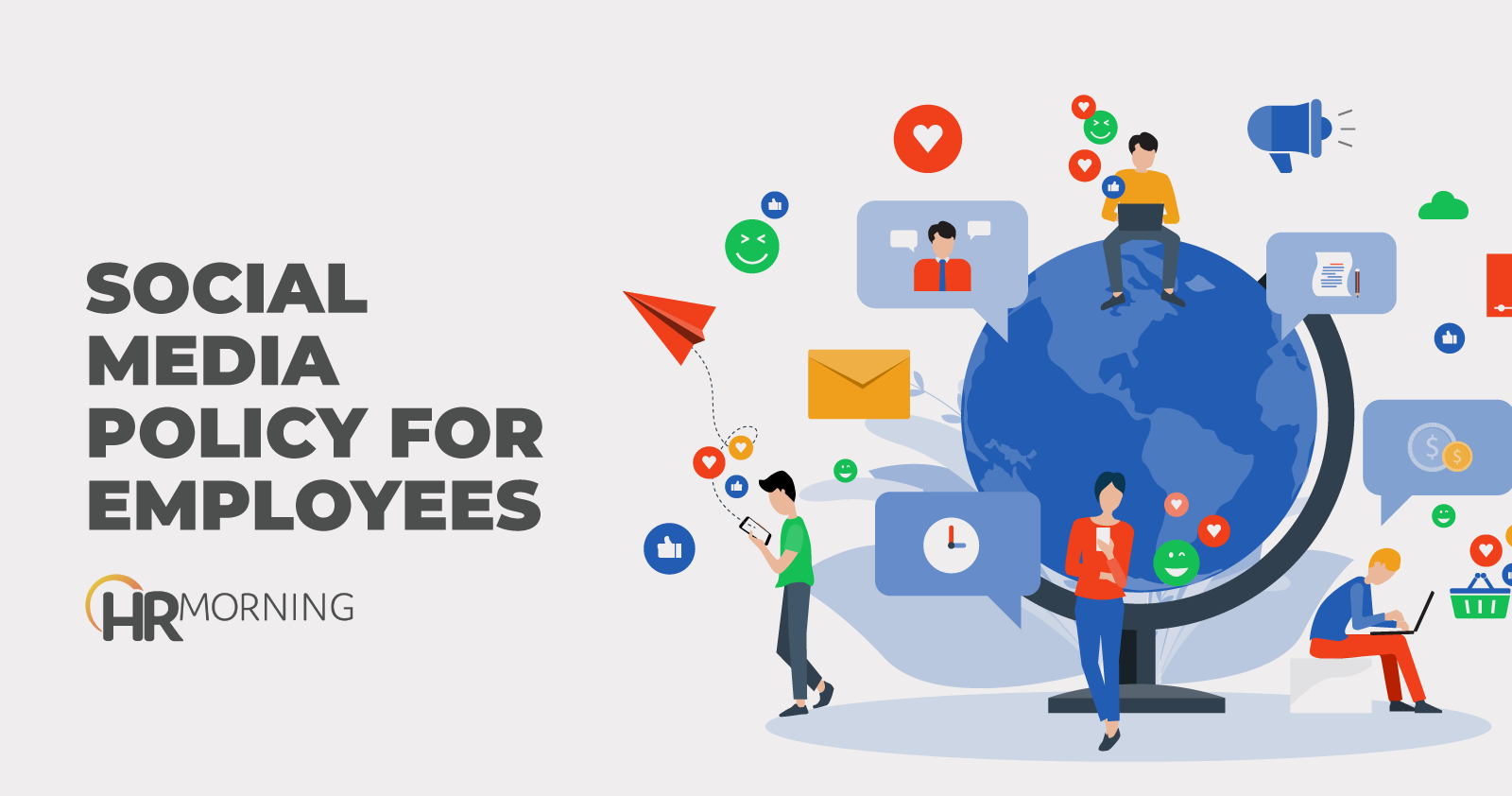There’s no denying social media is part of our everyday lives – but how can companies ensure employees use social media the right way?
Even if you’re not plugged into Instagram or Facebook, chances are the trending stories and posts still infiltrate the water cooler talk at work or discussions over the dinner table.
Many companies have implemented social media policies to establish clear rules and policies for employees’ social media use.
If your company is considering crafting a social media policy or updating an existing one, here are a few things to keep in mind:
Definitions
Before you can even get into the meat and potatoes of your policy, it may be a good idea to make sure employees understand what is and isn’t considered “social media.” Social channels like Twitter, Instagram and Facebook are social media – but what about blogs, and other online communication tools? A clear-cut outline of what is and isn’t social media will help keep all employees on the same page.
It’s also a good idea to define what the policy refers to. Some social media policies are just in relation to official company accounts, while others are meant to govern personal accounts. While you can’t dictate what employees say off the clock, you can spell out some rules for what employees say about your company, and how they do it – even when they’re not on the job.
Content
After you’ve established what the term “social media” consists of, you may want to outline what content is acceptable to post and what is off-limits. You may want to consider outlining rules for things like company logo usage, responses to negative feedback online or rules on posting personal pictures in company uniform.
Although it may seem obvious, outlining online etiquette, such as prohibiting inflammatory language and offensive images, will help maintain employee expectations and manage a crisis if an employee does something offensive online.
Your policy may encourage employees to identify somewhere on their accounts that their views are their own. This can help create a distinction between an employee’s personal opinions and opinions of the brand.
You may want to consider some of the following content guidelines to help develop your social media policy:
- Who has control over the company’s official social media accounts?
- If an employee sees negative feedback about the brand online, are they allowed to respond? If so, what are the expectations for the response?
- What kind of information about the brand is prohibited on social media (i.e., client or financial information)?
Legal rules
A social media policy isn’t just to help keep brand identity consistent – it can also help avoid legal trouble. If your employee is posting on your company’s behalf, you need to make sure everyone understands things such as copyright rules, fair use and what information is considered confidential. Make sure employees know the ramifications of publicly sharing trade secrets and other confidential information.
It’s a good idea to educate employees on social media use that can result in legal and professional consequences. Many people feel emboldened behind the keyboard and say things they normally wouldn’t in a face-to-face conversation. Harassing fellow employees online is just as punishable as verbal harassment, and depending on the context, can even be illegal.
When it comes to legality, companies and employees need to be aware of the rules. Social media policies that restrict what employees say about working conditions and other labor-related issues could land you in hot water with the National Labor Relations Board.
Crisis plan
A social media policy is so important because what you post on the internet stays there forever, and one brand mishap can make you go viral. A crisis intervention plan can help you avoid PR nightmares. Include steps to take in case of a crisis, such as when to escalate and who to get involved.
A good crisis plan in your policy can help avoid mishaps like Red Cross did in 2011: An employee had accidentally tweeted from the company account instead of their personal account. That quickly set a crisis plan into action. The tweet was deleted, and Red Cross addressed the mishap by explaining the situation and remedying it with humor.
Engagement
There’s nothing wrong with encouraging engagement from employees to your brand’s social channels to help promote brand awareness. You can ask employees to engage and share their honest thoughts on the workplace and put their company on their social profiles, which can also help attract new talent and increase brand trust.
For example, Adobe uses “#AdobeLife” for employees to share their journey with the company and their experience working there. If you want to incentivize this, you can choose one employee who used your brand’s hashtag once a month or quarterly for a shout-out or other incentive.
Repercussions
In addition to outlining rules, make sure that your social media policy also lays out what happens if these guidelines aren’t followed. There are many instances of employees being fired for tweeting something that’s against the company’s policy or mishandling the company’s official social media. Clearly stating the repercussions of misusing social media can help set expectations for employees and provide a concrete reference to go back to if an employee is misusing social media.


